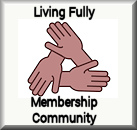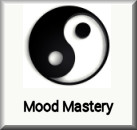Both marriage research greats, Sue Johnson and John Gottman, talk about challenges in communication. Sue Johnson looks at communication as an opportunity to create basic safety and security. She encourages couples in her book, Hold Me Tight, to look at the way you dance together to form reactive anger or the pain of dismissing or distancing. As in both Johnson and Gottman therapies, it is important to keep a positive regard for your partner during difficult communication and to frame the dance you are in as the problem. Look at your own relationship and see where you are in your communication. From the outside, in a therapy office it is easy to see the pattern but when you are in it yourself, it is definitely not so easy. Sue Johnson looks at three types of dialogues that you may recognize in your relationship.
1. Find the Bad Guy: This is when one or both of you accuse each other or blame each other for whatever is happening between you.
2. The Protest Polka: This is when John Gottman’s ideas of criticism, contempt, Control, avoidance, defense and stonewalling come into play. His research shows that these lead to the divorce court.
3. Freeze and Flee: This is where a couple mutually withdraws from the relationship and feelings of helplessness and hopelessness occur.
Couples can do all three, according to Sue Johnson, and I have certainly seen that in my practice. Usually, however, there is one dialogue that is played out more then any other between you. Have a conversation with your partner to see which it is that you do together and how you might make changes in this area.
One change that works well is understanding how to make a complaint. Also looking at the bigger picture and not focussing on this one dialogue as a maker or breaker of your relationship. Sue Johnson explains this as looking at the game not the ball or looking at the dance, not the last step only. This frame of mind keeps you out of hopelessness and helplessness and gives you the opportunity to use your constructive self to make some changes. It also allows you to keep a sense of positive sentiment override (John Gottman’s term) for your partner in the midst of the conflict. Of course, self soothing is important as well as being able to soothe your partner as well during the dialogue. These ideas add to the sense of security and stability of the relationship.
Learn more about how to learn these skills in the upcoming workshop on November 2nd and November 9th, 2013. See the website www.7principlesformakingmarriagework.com for more information and for registration.





